Wars are an integral part of human existence. And there are people whose tactical and strategic genius is fully revealed only during military operations. They are called the best generals in history... We present the 10 greatest of them today to your attention.
10. Konstantin Rokossovsky (1896-1968)
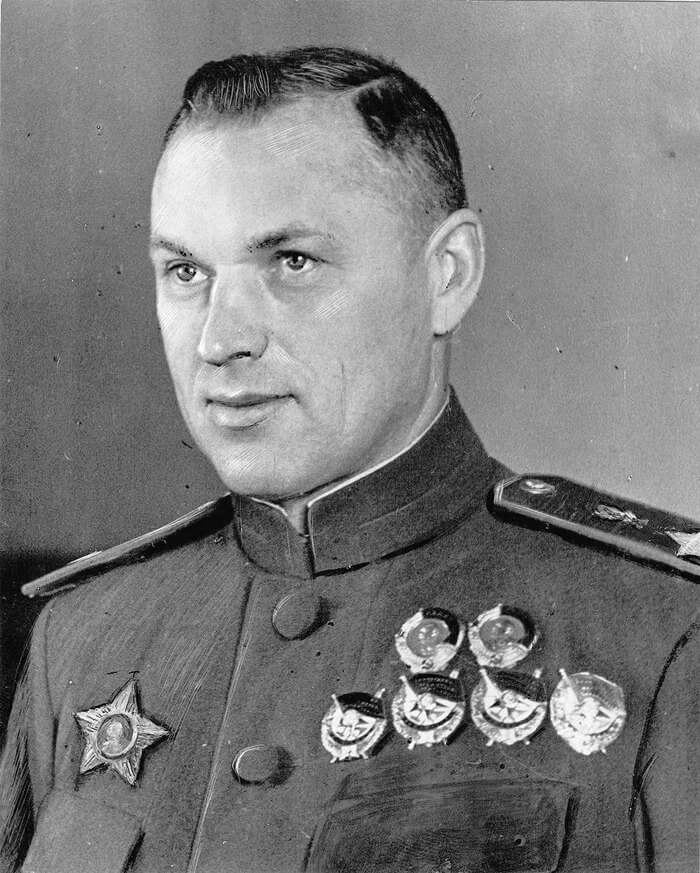 One of the famous Victory commanders was the only person in the history of the USSR who became a marshal of two countries at once: Poland and the Soviet Union.
One of the famous Victory commanders was the only person in the history of the USSR who became a marshal of two countries at once: Poland and the Soviet Union.
During the Great Patriotic War, Rokossovsky supervised such important operations as the Battle of Moscow (1941), the Battle of Stalingrad and the Battle of Kursk (1942 and 1943).
However, his leadership talent was fully revealed during the liberation of Belarus in 1944. At the suggestion of Rokossovsky, the troops of the 1st Belorussian Front struck a blow in two main directions at once, depriving the Germans of the opportunity to maneuver their reserves. Well-prepared disinformation gave the German command a false idea of the place of the general offensive.
According to many historians, during Operation Bagration, German troops suffered their greatest defeat in World War II.
9. Napoleon (1769-1821)
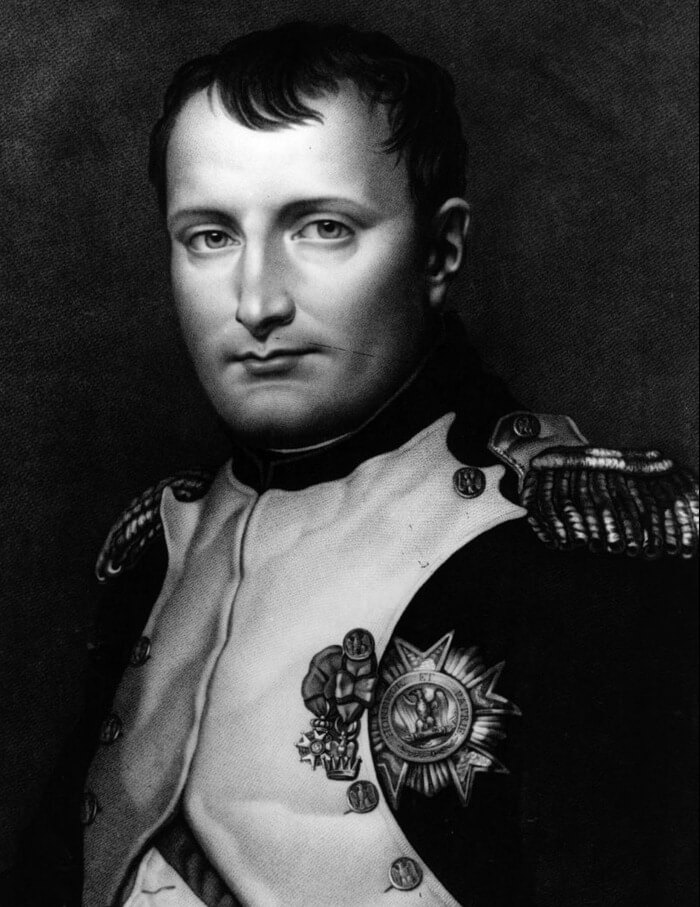 The General, First Consul, and ultimately Emperor of France won many battles, mostly fighting the rest of Europe. He was proclaimed king of Italy, obliged Spain to help France with money and a fleet, and gave Holland to his brother Louis. And this is only a small part of his military achievements.
The General, First Consul, and ultimately Emperor of France won many battles, mostly fighting the rest of Europe. He was proclaimed king of Italy, obliged Spain to help France with money and a fleet, and gave Holland to his brother Louis. And this is only a small part of his military achievements.
Fortune changed to Napoleon in 1812 when he invaded Russia. After the first successes, the capture of Smolensk and the deserted Moscow, the Napoleonic army suffered a series of defeats, largely due to the large-scale partisan movement. Napoleon fled back to France, losing most of his army.
Forced to surrender after the titanic battle of Leipzig in 1813, and abdicate for the first time in 1814, Napoleon was exiled to the island of Elba. However, he managed to return to the French throne for 100 days in 1815, was defeated by Blucher and Wellington at the Battle of Waterloo, and spent the rest of his life on Saint Helena trying to explain to anyone who listens why he is still the best general. in history.
8. Mikhail Kutuzov (1745-1813)
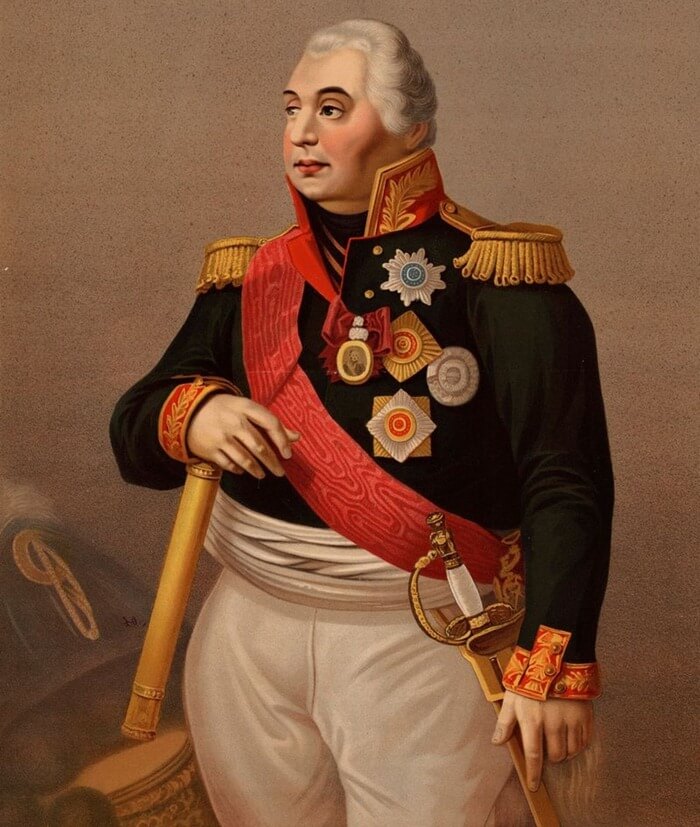 One of the greatest military leaders in Russian history was not a "nugget from the hinterland." He acquired his military experience under the command of such stars of military affairs as P. A. Rumyantsev and A. V. Suvorov.
One of the greatest military leaders in Russian history was not a "nugget from the hinterland." He acquired his military experience under the command of such stars of military affairs as P. A. Rumyantsev and A. V. Suvorov.
Kutuzov's military talent was most clearly revealed in the confrontation with another great commander - Napoleon Bonaparte. He preferred to protect the soldiers and not engage in large-scale battles with the French, giving the only general battle near the village of Borodino. Modern historians believe that the lack of victory at Borodino was one of the main factors in Napoleon's defeat.
Napoleon Bonaparte did not respect his opponents too much, not sparing a strong word for them. However, he made an exception for Kutuzov, explaining the failure of the Russian campaign by "merciless Russian frosts."
7.Alexander Suvorov (1730-1800)
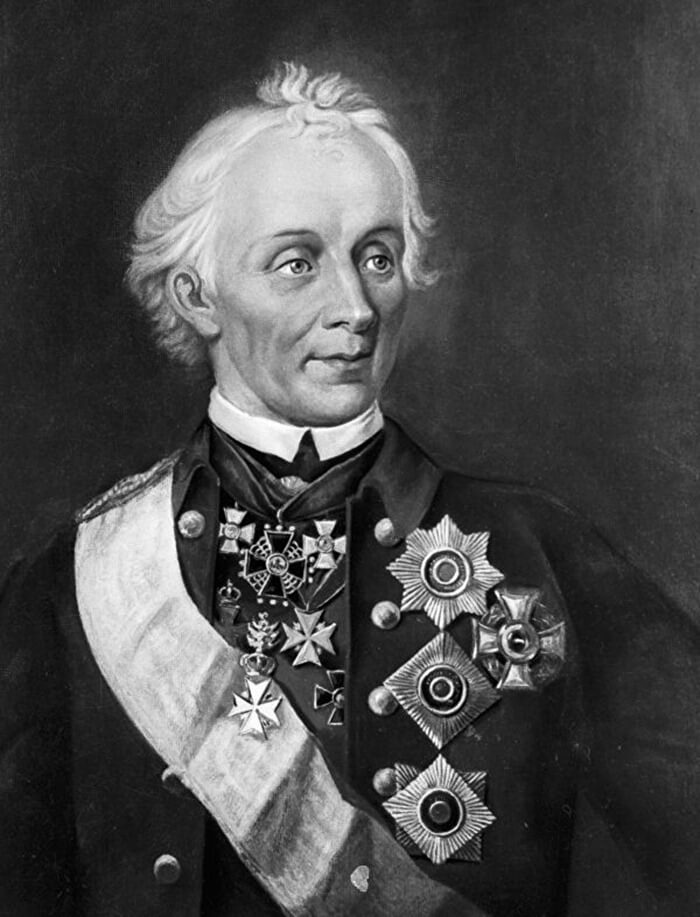 One of the best military leaders in the world has not lost a single battle in his entire military career. And he participated in more than 60 major battles.
One of the best military leaders in the world has not lost a single battle in his entire military career. And he participated in more than 60 major battles.
Among the most famous military campaigns of Suvorov included: the capture of Izmail and the Italian and Swiss campaigns.
- Izmail - a Turkish fortress, built according to the latest (for that time) requirements of serfdom, was considered impregnable. Suvorov ordered the creation of a training camp imitating the ditch and rampart of the Izmail fortress. After eight days of training, Russian troops stormed Izmail.
- During the campaign in Northern Italy, Russian troops under the command of Suvorov liberated the Italians from the rule of the French Directory. And the count himself received from the Sardinian king the magnificent rank of "Grand Marshal of the Piedmontese troops."
- During the 17-day Swiss campaign, Suvorov's famous crossing over the Alps took place. After the storming of the Saint Gotthard Pass and the capture of the Devil's Bridge, exhausted and hungry Russian soldiers went to the town of Altdorf, from which there was no further road through the mountains. Suvorov and his miraculous heroes had to cross the Rostock ridge and the Muoten Valley without any climbing equipment, with wounded comrades, provisions and weapons. Unfortunately, due to the numerous betrayals of the Austrians, the Swiss campaign could not be completed as planned in St. Petersburg. The French were not defeated, and the Russian corps of General Rimsky-Korsakov was completely destroyed.
6. Frederick II of Prussia (1712-1786)
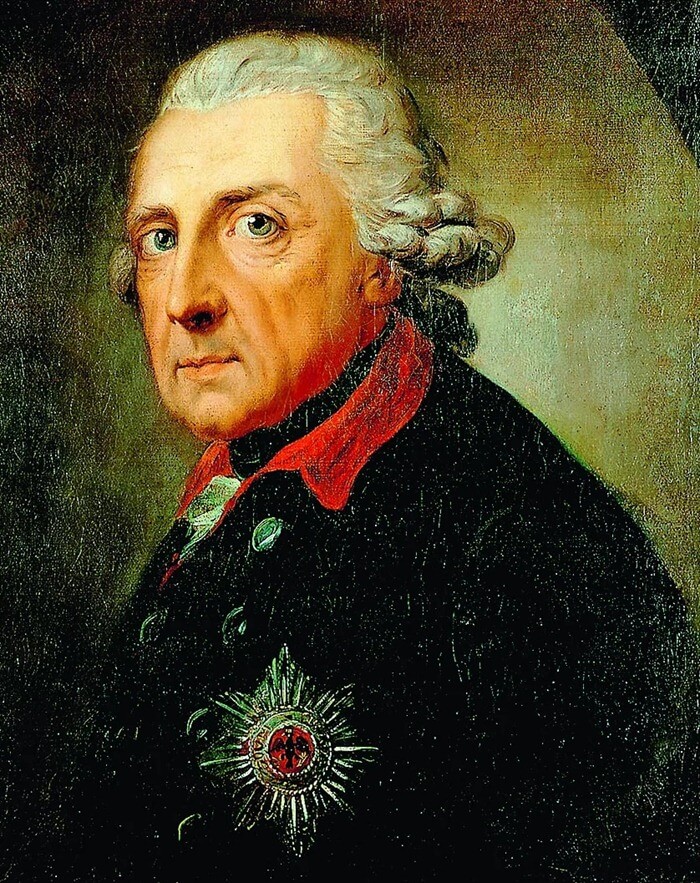 Having doubled the territory of Prussia during his reign, Frederick, nicknamed the Great by his contemporaries, fought with the Russians, Saxons, French, Swedes and Austrians. In the battles of Rosbach and Leuthen, he valiantly conquered forces more than double his own, mainly thanks to two skills he considered the key to victory: speed of decision making and lightning speed of their implementation.
Having doubled the territory of Prussia during his reign, Frederick, nicknamed the Great by his contemporaries, fought with the Russians, Saxons, French, Swedes and Austrians. In the battles of Rosbach and Leuthen, he valiantly conquered forces more than double his own, mainly thanks to two skills he considered the key to victory: speed of decision making and lightning speed of their implementation.
Napoleon, during the invasion of Prussia, said about Frederick: "If this man were still alive, I would not be here." Frederick died peacefully in his sleep in 1786.
5. Jan Zizka (1360-1424)
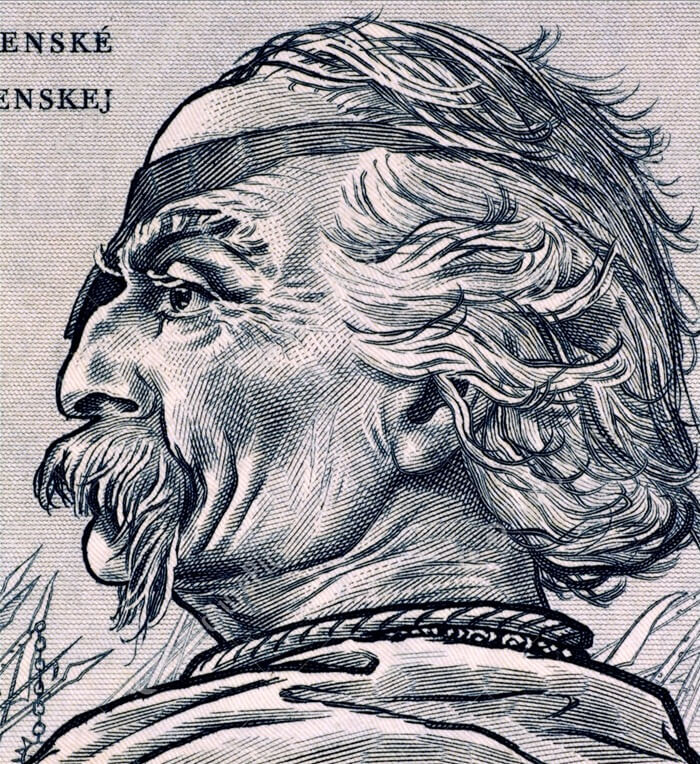 This Czech commander and leader of the Hussites can rightfully be called the "honey badger" of his time, for his fearlessness, severity and ingenuity. Judge for yourself.
This Czech commander and leader of the Hussites can rightfully be called the "honey badger" of his time, for his fearlessness, severity and ingenuity. Judge for yourself.
- Before becoming the leader of the Hussites (representatives of the Czech reformist religious movement), Zizka managed to fight for the Poles, the Hungarians, and the British (but this is not accurate, since there is no reliable information about his service to Henry the Fifth). And in his free time from the war, he was the leader of the robbers, after which he was amnestied by the Czech king Vaclav the Fourth and accepted into his service.
- Having lost his second eye during the siege of Rabi castle, and being completely blind, Zizka continued to lead the army. He was taken in a cart, in full view of the soldiers, so that they would not lose their presence of mind. Where Jan lost his first eye - history is silent.
- Zhizhka's "tanks", also known as "wagenburg" or "tabor", were chained carts, behind which were hiding crossbowmen, spearmen, shield-bearers and landing troops. The knightly cavalry was powerless in front of such an all-round defense.
- Ižka led the Hussites in numerous wars for many years before he died of the plague. Before his death, he asked to take off his skin and pull it on a drum, so that after death he would terrify enemies.
4. Genghis Khan (1162-1227)
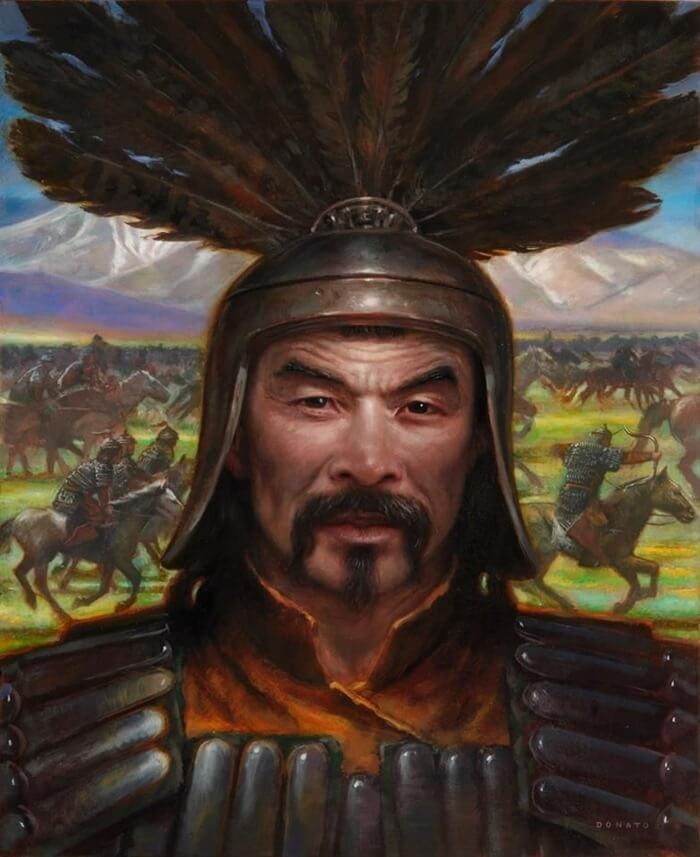 Under the leadership of this brilliant commander, the Mongols conquered China, Central Asia, the Caucasus and even Eastern Europe. Genghis Khan (at birth called Temuchin or Temujin) was often ruthless, destroying the entire population of many cities that did not surrender to him.
Under the leadership of this brilliant commander, the Mongols conquered China, Central Asia, the Caucasus and even Eastern Europe. Genghis Khan (at birth called Temuchin or Temujin) was often ruthless, destroying the entire population of many cities that did not surrender to him.
On the other hand, he was also religiously tolerant, a tactical genius (refining the feigned retreat ploy) and a master of maintaining supply lines for the largest continental empire in human history.
3. Julius Caesar (100-44 BC)
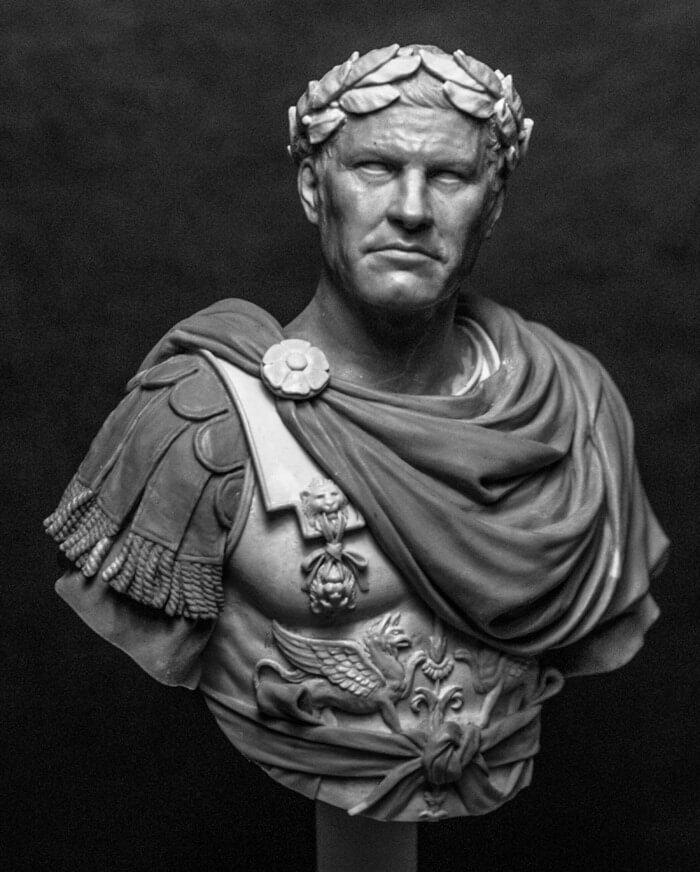 It is probably the most famous of all the ancient Romans. After the conquest of Gaul, which expanded the territory of Rome to the English Channel and the Rhine, Julius Caesar became the first Roman general to cross both of these water obstacles. Under his leadership, the Roman legions invaded Britain.
It is probably the most famous of all the ancient Romans. After the conquest of Gaul, which expanded the territory of Rome to the English Channel and the Rhine, Julius Caesar became the first Roman general to cross both of these water obstacles. Under his leadership, the Roman legions invaded Britain.
These achievements provided the great Roman general with unrivaled military glory that threatened to outshine Cnaeus Pompey, Caesar's former triumvirate ally. Pompey accused Caesar of insubordination and treason and ordered him to disband his army and return to Rome. Caesar refused and in 49 BC. led his army to a civil war, in which he won.
Thanks to Caesar, Rome became the largest empire in the Mediterranean.
The assassination of Julius Caesar happened shortly before he was supposed to go on a campaign against the Parthian Empire.
2. Hannibal Barca (247-183 BC)
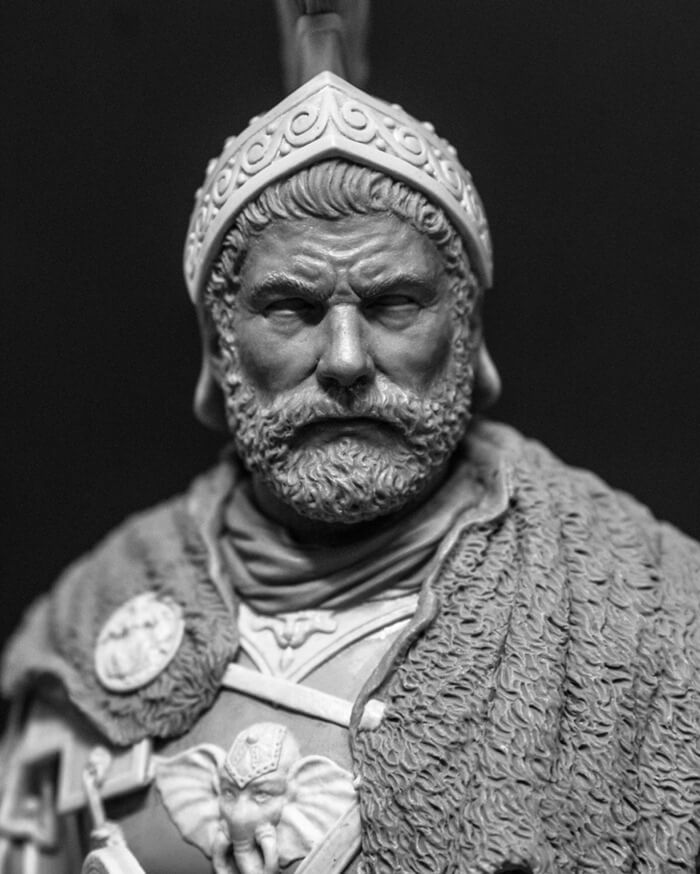 One of the greatest military leaders of antiquity went down in history as the man who brought Rome to its knees during the second Punic War. He defeated the Romans on Lake Trasimene, and lost only about 1,500 soldiers, which was incomparable with the losses suffered by the Roman army (15 thousand soldiers were killed, 6 thousand were taken prisoner).
One of the greatest military leaders of antiquity went down in history as the man who brought Rome to its knees during the second Punic War. He defeated the Romans on Lake Trasimene, and lost only about 1,500 soldiers, which was incomparable with the losses suffered by the Roman army (15 thousand soldiers were killed, 6 thousand were taken prisoner).
In Cannes, Hannibal demonstrated one of the earliest examples of the "tick" tactics. Most of the Roman army ended up in a cauldron from which they could not escape. The Battle of Cannes entered the military annals as one of the bloodiest, according to various estimates, from 60 to 70 thousand Romans died. Hannibal captured Tarentum, Syracuse and Capua - the most important city in Italy after Rome.
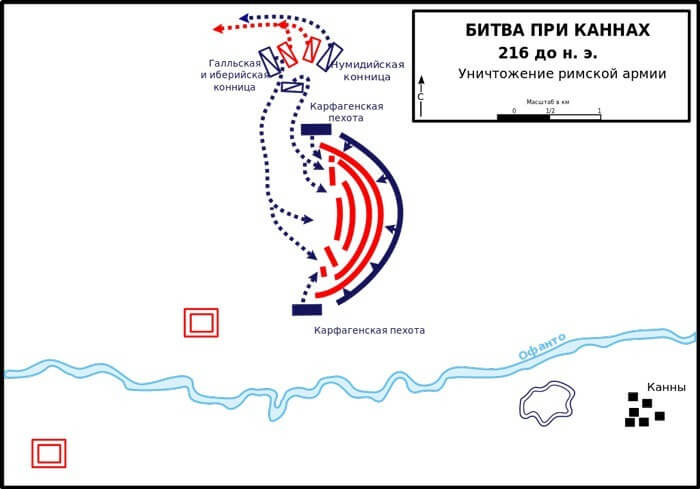
Unfortunately for Hannibal, the Romans quickly realized that the tactic of "abandoning the battle" and liberating the cities captured by the Carthaginians meant that the army of Carthage could only chase Roman troops throughout Italy, causing trouble for the local population, but gradually depleting their strength. Ultimately, Hannibal was forced to retreat to Carthage, where he was defeated by Scipio at the Battle of Zama.
1. Alexander the Great (356-323 BC)
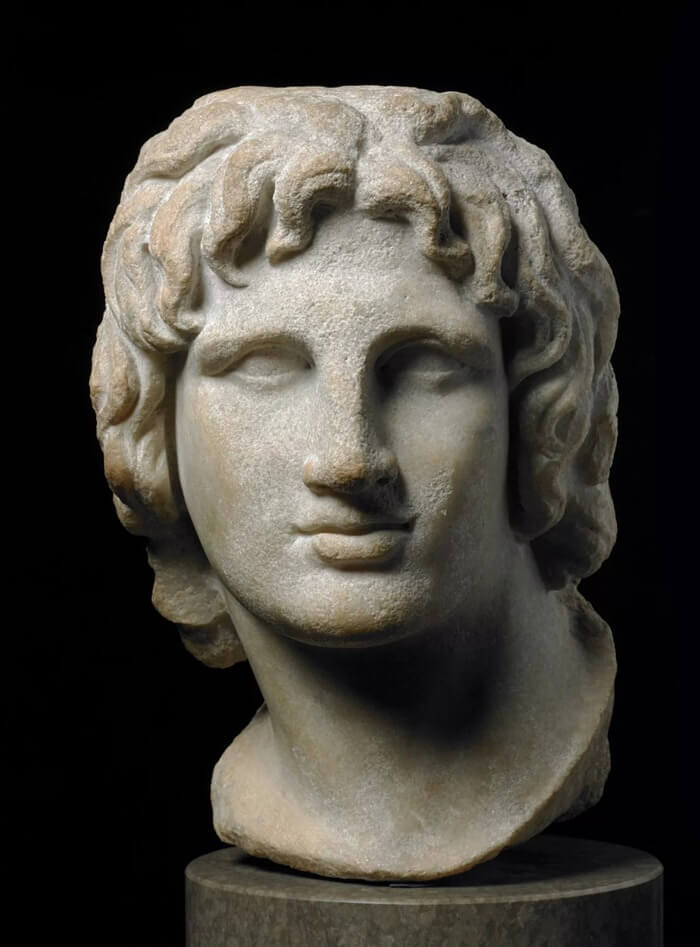 In Western historiography, this Macedonian king is known as Alexander the Great. He conquered an incredibly vast territory for his time - from Asia Minor, Syria and Egypt to Persia, Central Asia and the shores of the Indus - founded twenty separate cities of his name, and continued to be worshiped as God in many lands conquered by him for centuries.
In Western historiography, this Macedonian king is known as Alexander the Great. He conquered an incredibly vast territory for his time - from Asia Minor, Syria and Egypt to Persia, Central Asia and the shores of the Indus - founded twenty separate cities of his name, and continued to be worshiped as God in many lands conquered by him for centuries.
For the greatest military leader of all time, it was important not only to be able to win, but also to know what to do with victory. Alexander recognized the importance of people whom he conquered and did not strive for their assimilation. He brought Greek culture, philosophy and technology to the conquered peoples.
Alexander the Great died at the age of 32, before many other famous military leaders on this list scored their first victory.

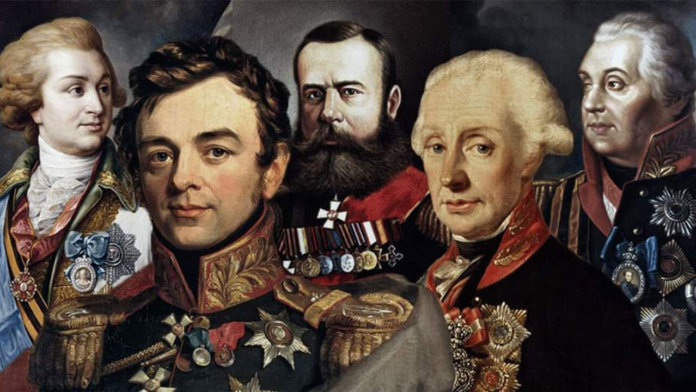
And where is Tamerlane, who captured half of the globe?
But what about Gustav 2 Adolph, Eugene of Savoy, Moritz of Orange?
Robert Lee and Ulysses Grant will give them all a light!
Hitler? Really?!
Why is there no Suvorov?
pounding in your eyes?